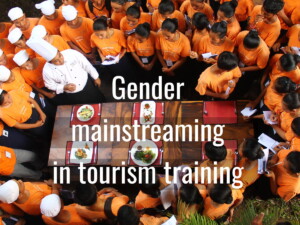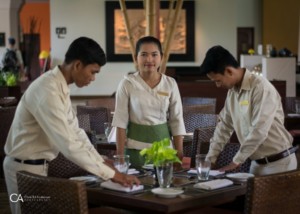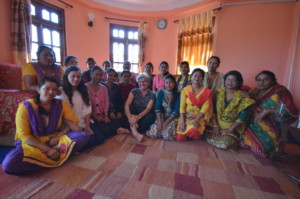Are developing destinations failing to tap the potential of women in tourism?

… And how is Iran involving women in tourism to help develop its enormous potential as a travel destination?
Iranian writer Zohreh Khosravi offers answers in her first “Good Tourism” Insight.
[You too can write a “GT” Insight.]
The biggest challenge and threat facing the travel & tourism industry over the next five years will be the continued lack of attention given to the role of women in tourism, especially in developing economies.
As the most dynamic segment of the population in developing countries, women play a valuable role in travel & tourism:
- They are often responsible for presenting and delivering tourism services;
- They play essential roles in agriculture and food production; and
- They are best positioned to educate new generations of responsible travellers.
In terms of management positions, leadership opportunities, and in formulating responsible and sustainable tourism strategies and frameworks in developing countries, women are potentially more influential than men.
Yet their potential remains relatively untapped with only a small share of tourism management and strategy roles performed by women.
Read other “GT” posts tagged with “Women”
A healthy society is one that has powerful, well-educated, highly-developed, capable, strong, and responsible women; a society in which women are sufficiently empowered at the lower layers, in service delivery, as well as the upper layers of leadership.
Women can play a very important role; from the management of accommodation infrastructure through to the design of macro strategies for tourism development.
And different generations within society, from the very young to the very old, can benefit from well-educated women in leadership positions.
I believe that it is impossible for the tourism sector to develop responsibly and sustainably without the active participation of women.
Women in tourism need institutional and national support
In my opinion, the biggest threat to tourism in the future is for institutions and nations to underestimate the presence and role of women, and to assume that their mere participation in providing services to tourists is enough.
The United Nations World Tourism Organization (UNWTO) and all tourism-related institutions should help developing nations in encouraging tourism education for women.
It is also necessary to further encourage the participation of women in tourism research projects, in industry leadership, in proposing solutions for the sustainable development of tourism, and in policymaking.
Iran is missing out on the potential of women in tourism
In developing countries — such as in my country, Iran — women are often more influential than men as leaders of local tourism projects, especially in (often rural) communities with closed cultures. Women play a key role at ground level in the delivery of sustainable tourism projects.
However, community heads often prefer that women be facilitators for other women. Thus women will move among host communities and remind other women on how to deal with tourists, on the importance of preserving local identity, and how to pay attention to their service skills and capabilities.
Unfortunately, Iran’s tourism industry almost always ignores women when it comes to filling leadership roles. In the accommodation sector, for example, women play an important and active role in administrative matters, but very few occupy the position of general manager or higher.
Read more about
“Good Tourism” Destinations & Places in Asia
After working in the tourism industry for more than a decade, with roles in hotels and travel agencies and tourism startups, I have found that women in leadership or management positions have always been subordinate to men; even if those women hold C‑level positions, including ‘CEO’.
In academia, too, very few women are tourism and hospitality lecturers. During the two years of my master’s program, I had only one female professor. All my other professors were men. I feel that it is a big problem for the future of tourism in Iran that women’s share of university seats is so low.
Furthermore, in government there is a lack of a strong female presence influencing tourism policy development. This despite mounting evidence that the leadership of well-educated women can contribute to the responsible and sustainable development of the tourism industry, and help to mitigate the threats and challenges to its future.
With so much potential for tourism development, Iran is missing out by failing to tap the significant potential of half of its population.
What do you think? Share a short anecdote, comment, or question below. Or write a “GT” Insight of your own. The “Good Tourism” Blog welcomes diversity of opinion and perspective on travel & tourism because travel & tourism is everyone’s business.
Featured image (top of post): The queen is more powerful than the king in the ancient game of chess. Image by Bruno / Germany (CC0) via Pixabay.
About the author

Zohreh Khosravi is a content strategist with more than 10 years of experience in various segments of the tourism industry. Her favourite fields include sustainable tourism, responsible travel, and heritage interpretation.





